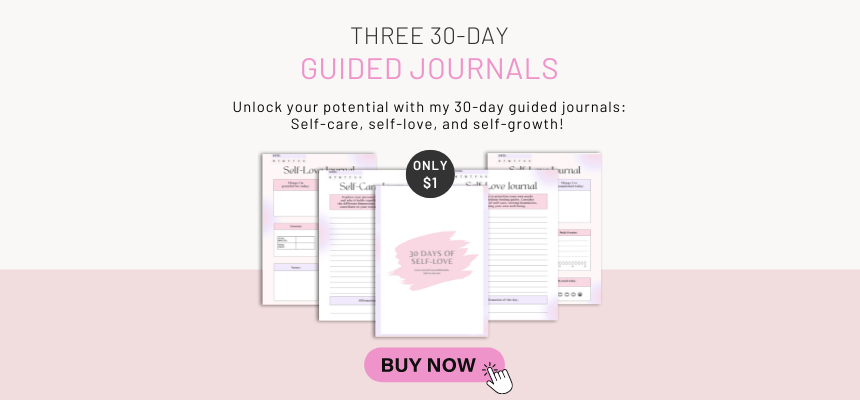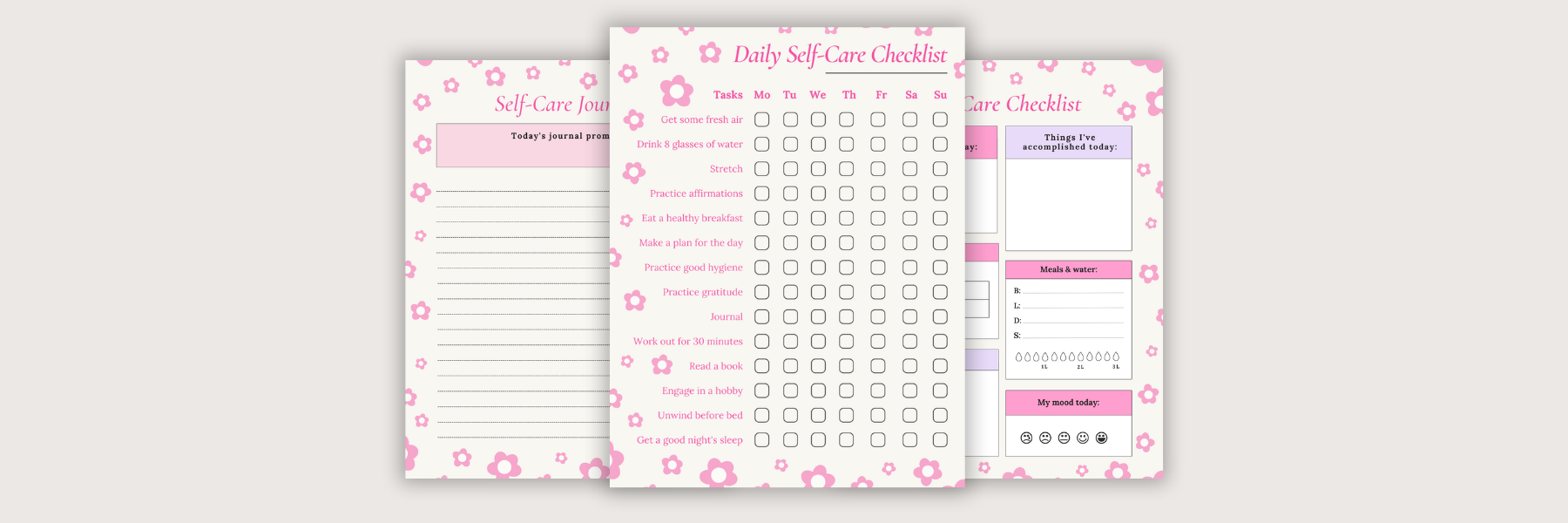A list of 90 good writing prompts for jealousy
We’re going to explore some journal prompts for jealousy that will help us understand jealousy better and, most importantly, help us grow as individuals.
You see, just like you, I believe that personal growth is super important. It’s all about getting to know ourselves better, becoming stronger and more confident, and finding true happiness.
And sometimes, those feelings of jealousy can actually teach us a lot about ourselves.
So, grab a pen and a journal, and get ready to discover some amazing things about yourself.
We’re going to take a journey together, and along the way, we’ll uncover why we feel jealous and how we can use those feelings to become even better versions of ourselves.
Without further ado, let’s move on to 90 good journal prompts for jealousy.

This post may contain affiliate links. That means that if you click on a link and purchase something I recommend, I will receive a small commission at no extra cost to you.
30 retroactive jealousy journal prompts
- Write about a memory from your own past that might make you feel jealous.
- What are some healthy ways you can cope with and manage your feelings of jealousy?
- What are some things that make you feel insecure or worried, which can lead to jealousy?
- Describe a time when you were able to let go of jealousy. What did you do to feel better?
- Imagine writing a letter to your partner’s ex, expressing how you feel, and seeking closure.
- Are there any specific situations or things that make your jealousy worse? Write about them.
- Think about a time when you felt jealous about your partner’s past. How did it make you feel?
- Think about how trust plays a role in overcoming jealousy and building a strong relationship.
- Make a list of your own qualities and strengths that have nothing to do with your partner’s past.
- Think about times when your partner reassured you and made you feel less jealous. How did it help?
- How has jealousy affected your current relationship? Write about any problems or arguments it caused.
- Imagine a future where jealousy doesn’t bother you. How would that feel? What can you do to make it happen?
- Write about the thoughts and pictures that come to mind when you think of your partner’s previous relationships.
- Write a letter to your partner, expressing your thanks for their love and support despite your struggles with jealousy.
- Imagine having an open and honest talk with your partner about your jealousy. What would you say? How would you want them to respond?

- Explore the idea of forgiveness and how it can help you let go of jealousy.
- Make a list of positive phrases or thoughts you can use to replace negative ones when jealousy arises.
- Think about the influence of society and comparisons on your jealousy. How can you deal with them?
- Write about activities or hobbies that make you happy and distract you from feeling jealous.
- Describe a future where you’ve successfully overcome jealousy. How does it affect your relationship?
- Reflect on the importance of taking care of yourself and being kind to yourself when dealing with jealousy.
- Write a letter to your younger self, understanding and supporting your struggles with jealousy.
- Explore any communication patterns with your partner that may contribute to jealousy.
- Make a list of qualities and values you appreciate about yourself, separate from comparing yourself to your partner’s past.
- Reflect on how you can rebuild trust and how it impacts overcoming jealousy in your relationship.
- Imagine seeking advice from a trusted friend or mentor regarding your jealousy. What would they say?
- Write about times when you’ve grown and improved as a result of facing your jealousy.
- Reflect on how your past experiences shape how you see relationships and jealousy.
- Write a forgiveness letter to yourself, acknowledging mistakes related to jealousy and committing to personal growth.
- Explore different perspectives on love and relationships that can help change your thoughts about jealousy.
30 shadow work prompts for jealousy in relationships
- Think about a time when jealousy led you to do or say something negative. What can you learn from that experience?
- Write about the deeper feelings behind your jealousy. Are you afraid of being left out or not being good enough?
- Write a letter to your partner, expressing your vulnerability and sharing how your jealousy affects your relationship.
- Reflect on moments from your childhood or previous relationships that may have influenced your jealousy.
- Explore any beliefs you have about yourself or relationships that make you feel jealous.
- Write about a specific situation that recently made you jealous. How could you respond differently in the future?
- Reflect on how jealousy might stem from feeling like there’s not enough love or attention to go around.
- Make a list of positive qualities and strengths you bring to your relationship, focusing on building self-esteem.
- Explore past experiences of betrayal or heartbreak that may impact your ability to trust and fuel jealousy.
- Reflect on how self-worth and self-love can help overcome jealousy and create healthier relationships.
- Write a letter to yourself, acknowledging your progress in managing jealousy and committing to growth.
- Explore the importance of setting boundaries in relationships and how they can help alleviate jealousy.
- Reflect on the impact of social media on your jealousy and explore strategies for managing its influence.
- Write about moments when you’ve felt secure and confident in your relationship. What made you feel that way?
- Explore the role of open communication with your partner regarding jealousy and brainstorm ways to initiate these conversations.

- Write a letter to your jealousy, expressing gratitude for the lessons it has taught you and your intention to let it go.
- Reflect on any childhood experiences or messages about love and relationships that contribute to your jealousy.
- Explore different ways to see situations that trigger jealousy, seeking more balanced and rational perspectives.
- Write about activities or practices that help you take care of yourself and feel better during moments of jealousy.
- Reflect on the role of empathy and compassion in overcoming jealousy, both toward yourself and your partner.
- Write a forgiveness letter to someone who triggered your jealousy, letting go of resentment and committing to personal growth.
- Explore self-soothing techniques like deep breathing or visualization to help manage jealousy in the moment.
- Reflect on the impact of comparison and seeking validation on your jealousy and explore strategies to reduce their influence.
- Write a gratitude list, focusing on the positive aspects of your relationship and shifting away from jealousy.
- Explore the concept of self-validation and the importance of finding worth and validation from within.
- Reflect on the role of trust-building activities and transparency in alleviating jealousy in your relationship.
- Write a letter to your future self, envisioning a version of you who has overcome jealousy and thrives in healthy relationships.
- Explore the impact of self-compassion and self-forgiveness on overcoming jealousy.
- Reflect on times when you chose love and understanding over jealousy and celebrate your growth.
- Write a mantra or affirmation that captures your intention to release jealousy and embrace love, trust, and joy in relationships.
30 jealousy journal prompts for adults
- Reflect on a recent experience that triggered jealousy. What thoughts and emotions came up?
- Explore the specific fears or insecurities underlying your jealousy in relationships.
- Write about a time when jealousy led to a negative outcome in your personal or professional life. What did you learn from it?
- Reflect on how jealousy affects your overall well-being and happiness. How does it impact your emotions?
- Describe a time when you successfully managed and overcame jealousy. What strategies or tools did you use?
- Explore patterns or triggers that intensify your jealousy. Are there recurring themes or situations?
- Write a letter to yourself, offering compassion and understanding for your struggles with jealousy and committing to growth.
- Reflect on how past experiences or beliefs contribute to your jealousy. How can you challenge and change those beliefs?
- Describe a situation where jealousy negatively affected your relationships or interactions with others. How could you have responded differently?
- Reflect on the impact of jealousy on your self-esteem and self-worth. How can you build a stronger sense of self-acceptance?
- Write about activities or hobbies that bring you joy and help distract you from feelings of jealousy. How can you incorporate more of these activities into your life?
- Reflect on the influence of comparison and social media on your feelings of jealousy. How can you limit their impact and focus on your own journey?
- Describe a supportive person in your life who helps you navigate feelings of jealousy. How do they provide guidance and understanding?
- Write a list of positive affirmations that counteract the negative thoughts and self-doubt triggered by jealousy.
- Reflect on the role of gratitude in shifting your mindset away from jealousy. Write about moments of gratitude in your life.

- Explore the impact of jealousy on your relationships and connections. How can you foster trust and open communication to alleviate jealousy?
- Write a letter to a fictional character or role model who embodies qualities you admire and can learn from in relation to jealousy.
- Explore different self-care practices that support your emotional well-being and help you manage jealousy effectively.
- Reflect on the role of forgiveness, both towards yourself and others, in releasing the grip of jealousy and fostering personal growth.
- Describe a future scenario where jealousy no longer has power over you. How does that impact your relationships and overall happiness?
- Write a letter to your younger self, offering guidance and reassurance regarding your struggles with jealousy as an adult.
- Reflect on moments when you have chosen love, trust, and understanding over jealousy. How have those choices enriched your relationships?
- Explore the concept of self-awareness and its role in identifying and addressing the root causes of jealousy in your life.
- Write about a relationship where jealousy is absent or minimal. What factors contribute to the absence of jealousy in that dynamic?
- Reflect on the progress you have made in managing and overcoming jealousy as an adult. Celebrate your growth and resilience.
- Write a letter of gratitude to someone who has inspired you to overcome jealousy and embrace healthier relationships.
- Explore different perspectives on love, relationships, and personal growth that can help shift your mindset away from jealousy.
- Reflect on the ways in which you have grown and learned from your experiences with jealousy. What lessons have you learned?
- Write a letter to yourself, acknowledging your journey and commitment to growth. Encourage yourself to keep moving forward and embracing healthier ways of relating.
- Write a closing letter to jealousy, declaring your intention to release its hold on your life and embrace love, joy, and abundance.
You might also like: These prompts for healing your inner child are magical


FAQ: What’s the psychology behind jealousy?
You know, jealousy is something we’ve all experienced at some point in our lives.
It’s that little green monster that pops up when we feel threatened or worried about losing something or someone we value.
So, here’s the thing: jealousy is actually rooted in our natural human instincts. Back in the day, when our ancient ancestors roamed the Earth, jealousy played a role in their survival.
They had to compete for limited resources, including mates, food, and shelter. Feeling envious helped them protect what was important to them and ensure their own survival.
But in today’s world, our needs and desires have evolved, and so has jealousy. It’s not just about physical resources anymore; it can also be triggered by emotional and social factors.
We might feel jealous when a friend gets a better grade, when someone we care about spends more time with someone else, or even when we see someone on social media living what seems like a perfect life.
The psychology behind jealousy is complex. It often stems from our own insecurities and fears of not being enough or losing something valuable.
When we feel jealous, it’s like a signal that something important to us is at risk. It can make us question our self-worth and create a sense of inadequacy.
But here’s the cool part: By understanding the psychology behind jealousy, we can use it as a tool for personal growth.
When jealousy creeps in, instead of letting it consume us, we can take a step back and ask ourselves some thought-provoking journal prompts for jealousy.
What is it about this situation that makes me feel jealous? What insecurities might be triggering this emotion? Is there something I can learn about myself from this experience?
By digging deep and exploring these questions about jealousy, we gain valuable insights into our own desires, fears, and areas for personal improvement.
Jealousy becomes an opportunity for self-reflection and growth.
We can work on building our self-esteem, practicing gratitude for what we have, and focusing on our own unique journey rather than comparing ourselves to others.

FAQ: What are the causes of jealousy?
One major cause of jealousy is our own insecurities. Yep, those sneaky little thoughts that whisper, “Am I good enough?” or “What if someone else is better than me?”
When we doubt ourselves or feel unsure about our worth, it becomes easier for jealousy to creep in. It’s like our inner critic teams up with jealousy to make us doubt our own awesomeness.
Another cause of jealousy is comparison. We, humans, have a knack for looking at what others have and wishing we had it.
It’s natural to notice when someone else gets something we desire, whether it’s a promotion, a new gadget, or even a romantic partner.
That little voice inside starts whispering, “Why don’t I have that too?” and jealousy stirs up within us.
Insecurity and comparison can intertwine. When we don’t feel secure in ourselves or our relationships, jealousy can rear its head even stronger.
We might worry that someone will take away what we cherish or that we’re not enough to keep someone’s attention.
These fears can intensify jealousy and make it harder to feel secure and content.
Social media also plays a role in fueling jealousy, believe it or not. When we see those picture-perfect posts of people seemingly living their best lives, it’s easy to fall into the comparison trap.
We start thinking, “Why isn’t my life that amazing?” or “Everyone seems happier than me.” It’s important to remember that social media often showcases the highlights, not the full story.
You might also like: These journal prompts for overwhelm help you calm down

FAQ: What are the signs of jealousy?
One sign of jealousy is that icky feeling in your gut. You might notice a knot or a tightness, like butterflies gone wild.
It’s as if your intuition is tapping you on the shoulder, saying, “Hey, something’s not quite right here.”
Pay attention to that feeling, because it could be a sign that jealousy is trying to make its presence known.
Another sign is when you start comparing yourself to others.
Have you ever found yourself scrolling through social media and feeling a little twinge of envy when you see someone’s accomplishments or exciting adventures?
That’s jealousy whispering in your ear, making you question your own worth and desire what others have.
Jealousy can also show up in our behavior. We might find ourselves becoming a bit more possessive or territorial.
Maybe you notice that you’re keeping tabs on your friend’s interactions or feel a pang of discomfort when they spend time with others.
These behaviors can be signs that jealousy is trying to take control.
Sometimes, jealousy can even make us a bit defensive. When we feel jealous, we might find ourselves getting defensive when someone points out our own shortcomings or achievements.
It’s like a protective shield going up, trying to preserve our self-esteem and hide our insecurities.

FAQ: How can I get over my jealousy?
First, it’s important to acknowledge and accept your feelings of jealousy. It’s completely normal to feel this way sometimes, and there’s no need to beat yourself up about it.
Embrace your negative emotions with kindness and compassion, knowing that they are a part of being human.
Next, let’s shift our focus inward. Jealousy often arises from our own insecurities and fears. So, let’s shine a light on those insecurities and work on building our self-confidence.
Take some time to recognize your unique strengths, talents, and accomplishments. Celebrate your own journey and all the amazing things you bring to the table.
Now, here’s a powerful tool for overcoming jealousy: gratitude.
When we cultivate a grateful mindset, it shifts our attention away from what others have and towards what we have in our own lives.
Take a moment each day to appreciate the blessings, big and small, that surround you.
Gratitude helps us see the abundance in our lives and diminishes the need to compare ourselves to others.
Communication is key. If your jealousy stems from a specific relationship or situation, consider having an open and honest conversation with the person involved.
Share your feelings in a calm and respectful manner, expressing your needs and concerns. Healthy communication can help build trust and understanding, easing the grip of jealousy.
Remember to focus on your own journey. Comparison is the thief of joy, as they say. Instead of comparing yourself to others, channel that energy into personal growth.
Set goals, pursue your passions, and work on becoming the best version of yourself. By shifting your focus inward, you’ll find that there’s less room for jealousy to take hold.
Lastly, surround yourself with positivity and support. Spend time with people who uplift and inspire you.
Seek out communities and friendships that encourage personal growth and celebrate each other’s successes.
When you’re surrounded by a positive and nurturing environment, it becomes easier to let go of jealousy and embrace a more joyful and contented mindset.
You might also like: My all-time favorite journal prompts for goal-setting

FAQ: What is journaling, and what are the best journaling tips?
Journaling is like having a personal conversation with yourself on paper. It’s a way to express your thoughts, feelings, dreams, and experiences in a safe and private space.
First tip: Make it your own! There’s no right or wrong way to journal. It’s all about finding a style and format that work for you.
Whether you prefer a traditional notebook, a digital journaling app, or even a combination of both, choose a method that feels comfortable and inviting.
Make your journaling space a reflection of your unique personality.
Tip number two: Set the mood. Creating a cozy and peaceful atmosphere can enhance your journaling experience. Find a quiet space where you can relax and focus.
Light a vanilla cupcake-scented candle, play some soft music, or sip on a warm cup of tea. By setting the mood, you invite a sense of calmness and creativity into your journaling practice.
Next, let’s talk about consistency. Try to establish a regular journaling routine. It could be daily, weekly, or whatever frequency works best for you.
Consistency allows you to develop a deeper connection with yourself and make journaling a natural part of your life. So, find a rhythm that fits your schedule and stick to it.
Now, here’s an exciting tip: get creative! Journaling doesn’t have to be limited to words alone.
Feel free to explore different creative outlets like doodling, sketching, or even adding stickers and photographs to your journal.
Let your imagination run wild and express yourself in ways that go beyond traditional writing. This brings a sense of fun and playfulness to your journaling practice.
Tip number four: Write freely and without judgment. Remember, your journal is a safe space for you to be completely honest and authentic.
Write without worrying about grammar, spelling, or making everything sound perfect.
Embrace the messiness, the rawness, and the beauty of your thoughts and feelings. Give yourself permission to be vulnerable and let your true self shine through.
Lastly, let’s talk about writing prompts for jealousy. Sometimes, it can be helpful to have a little guidance to get your thoughts flowing.
Jealousy journal prompts are like little invitations to explore different topics or reflect on specific questions.
They can be a great way to jumpstart your journaling and dive deeper into self-reflection.

FAQ: How can journaling help me overcome jealousy?
When you put your thoughts and feelings down on paper, it’s like giving them a voice. Journaling for jealousy provides a safe and private space for you to express your emotions without judgment.
So, when those feelings of jealousy bubble up inside you, grab your journal and let it all out.
Write about what triggers your jealousy, how it makes you feel, and any thoughts or fears that come up.
By acknowledging and releasing these emotions, you create space for healing and growth.
Journaling also helps us gain a deeper understanding of ourselves. Through reflection, we can uncover the underlying causes of our jealousy.
Take some time to explore your insecurities, fears, and past experiences that may contribute to these feelings.
By shining a light on these underlying factors, you can start to address them and work towards healing and self-acceptance.
Journaling can also be a space for reflection and growth. Consider asking yourself thought-provoking questions about your jealousy.
What can you learn from these experiences? Are there any patterns or triggers you notice? How can you respond differently in the future?
By engaging in this self-reflection, you empower yourself to take control of your emotions and responses. Journaling becomes a tool for personal growth and transformation.
Journaling also allows you to track your progress over time. As you continue on your journey to overcome jealousy, flip back through your journal entries and notice the changes.
Celebrate the moments of growth and self-discovery you’ve experienced.
Recognize the patterns you’ve identified and the strategies you’ve developed. By witnessing your own progress, you gain confidence in your ability to overcome jealousy.
You might also like: The best intuition journal prompts to help you strengthen it

FAQ: How do I use these journal prompts for jealousy?
Let’s talk about how you can use journal prompts to explore and overcome your feelings of jealousy.
Journal prompts are like little guideposts that help you delve deeper into your emotions and gain insights about yourself.
They provide a starting point for reflection and self-discovery.
So, grab your journal, and let’s dive into using these journaling prompts for jealousy to navigate your journey toward letting go of jealousy.
When you come across a journal prompt about jealousy, take a moment to read it and let it sink in.
Notice how it resonates with you and what thoughts or emotions it brings up. Then, grab your pen and start writing. There’s no right or wrong answer—just your honest thoughts and feelings.
Let’s say the prompt is something like, “What triggers my jealousy the most?” Take a moment to reflect on this question.
Think about the situations, people, or circumstances that tend to ignite those feelings of jealousy within you.
It could be a specific type of achievement, a certain relationship dynamic, or even comparisons on social media.
Write about these triggers and explore how they make you feel. Be open and honest with yourself.
You might also like: These healing prompts for trust issues changed my life last year
Have you used journal prompts for jealousy before?

I’m a personal growth and self-care expert, as well as an avid motorcycle enthusiast and coffee and sweets lover. Through Lauraconteuse, I provide insightful and practical advice on topics such as self-care, self-love, personal growth, and productivity, drawing from my very own extensive experience and knowledge in the field. My blog has helped countless people achieve their goals and live more fulfilling lives, and my goal is to continue to inspire and empower others.








